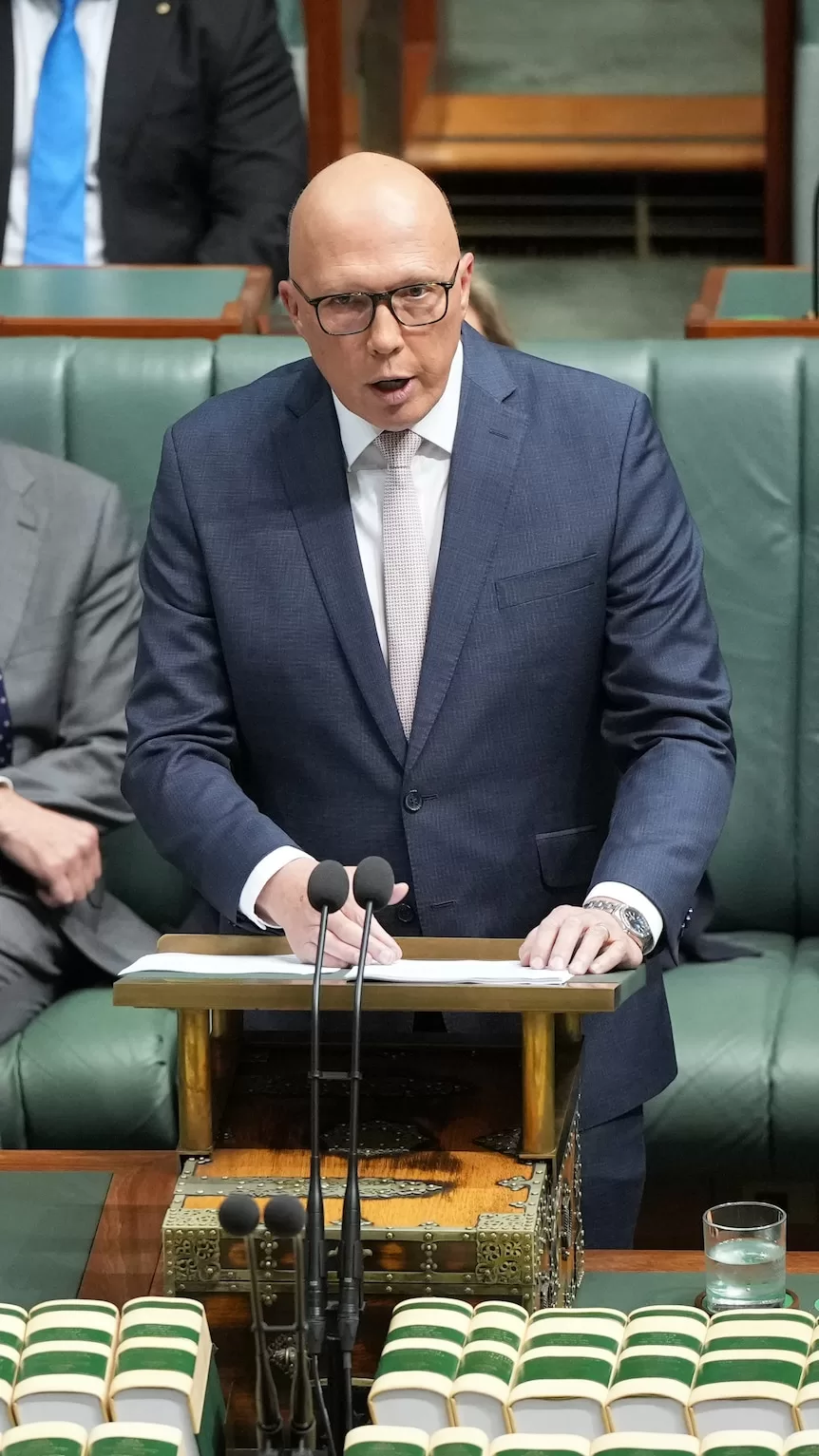Opposition Leader Peter Dutton has used his budget reply speech to advocate a reduction to migration numbers.
If elected, he said the Coalition would cut the number of permanent visas granted each year to 140,000.
That figure, sometimes called the permanent migration cap, is set by the government ahead of each financial year.
Its level for the coming financial year is 185,000, down from 190,000 the year before.
The permanent program includes family visas (about 50,000 a year), humanitarian visas (20,000 a year) and permanent skilled visas (the remainder).
Mr Dutton said he would impose a cap of 140,000 for two years, then 150,000 in year three and 160,000 in year four.
He said he would cut the humanitarian visa numbers from 20,000 to 13,750, but did not specify whether the rest of the cut would come from the family program or the skills program.
Mr Dutton also called for a reduction in international student numbers.
This week, the federal government announced plans to introduce caps on an institution-by-institution basis, which will need to be negotiated.
Mr Dutton appeared to suggest a nationwide cap instead, saying he would “work with universities to set a cap, calling the current number of students “excessive”.
A post-pandemic surge of international students and temporary skilled workers, another uncapped program, led to an unusually high number of arrivals in 2022-23.
In that year, net overseas migration (arrivals less departures) was 518,000, almost twice the amount typical in recent years. The government believes the number for the current financial year will be about half that.
Mr Dutton has long sought to connect these recent arrivals with cost-of-living pressures, and in particular housing affordability.
In his Thursday evening speech, he suggested limiting migration would “free up almost 40,000 additional homes in the first year and well over 100,000 homes in the next five years.”
“The usual CEOs and big businesses may not like this approach. But my priority is restoring the dream of home ownership,” he said.
Mr Dutton also promised a two-year ban on foreign investors and temporary residents purchasing existing homes in Australia.
Nuclear locked and loaded, but sites unknown
Mr Dutton also reaffirmed the Coalition’s support for nuclear power.
But having foreshadowed a detailed policy proposal before the federal budget, he did not today outline suggested locations or whether government funding would be required.
“We hold the largest deposits of uranium on the planet … With nuclear power, we can maximise the highest yield of energy per square metre and minimise environmental damage.
“We do that by putting new nuclear technologies on or near the brownfield sites of decommissioned or retiring coal-fired power plants using the existing grid.
“There’s no need for all of the proposed 58 million solar panels, almost 3,500 wind farms, and 28,000 kilometres of new transmission poles and wires.”
Analysis by the Australian Energy Market Operator and the CSIRO found small modular nuclear reactors were the most expensive source of energy generation for Australia, with renewables the cheapest.
That analysis includes the ‘set-up costs’ of each power source, including storage and transmission costs for renewables and the cost of establishing nuclear from scratch.
The analysis suggests it would take nearly 20 years to set up nuclear power in Australia. The Coalition has argued it can be done within a decade.
Law and order
Mr Dutton promised that if elected he would introduce a new criminal offence for coercive behaviour online.
The offence would apply to the use of “mobile phone and computer networks to cause an intimate partner or family member to fear for their personal safety, to track them using spyware, or engage in coercive behaviours,” he said.
He also promised tough bail laws would apply to these Commonwealth offences, and said state and territory bail laws for gendered violence offenders should also be tightened.
Mr Dutton also said he would work with states and territories to develop uniform knife laws, suggesting ‘Jack’s Law’ in Queensland, which gives police stop and search powers, should be used as a model.
Posted , updated
